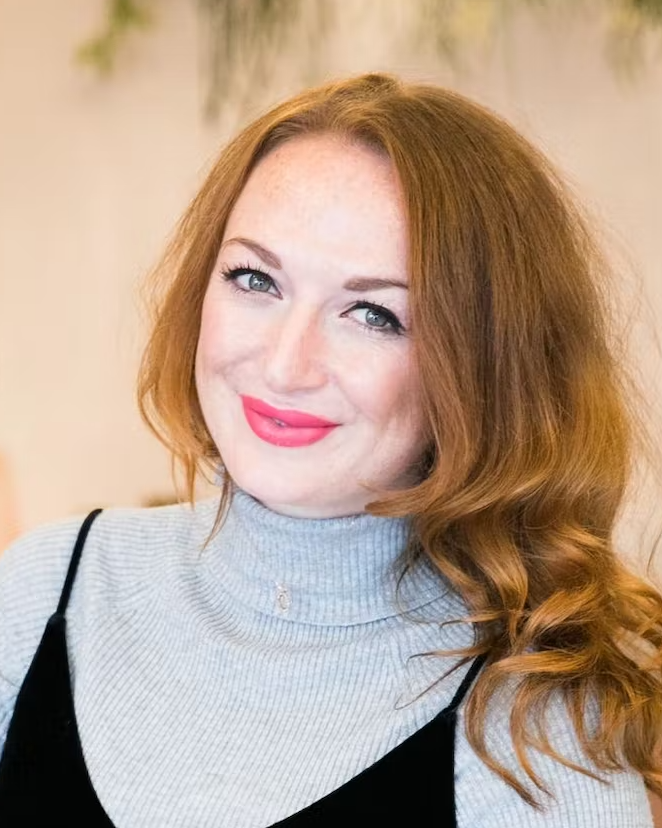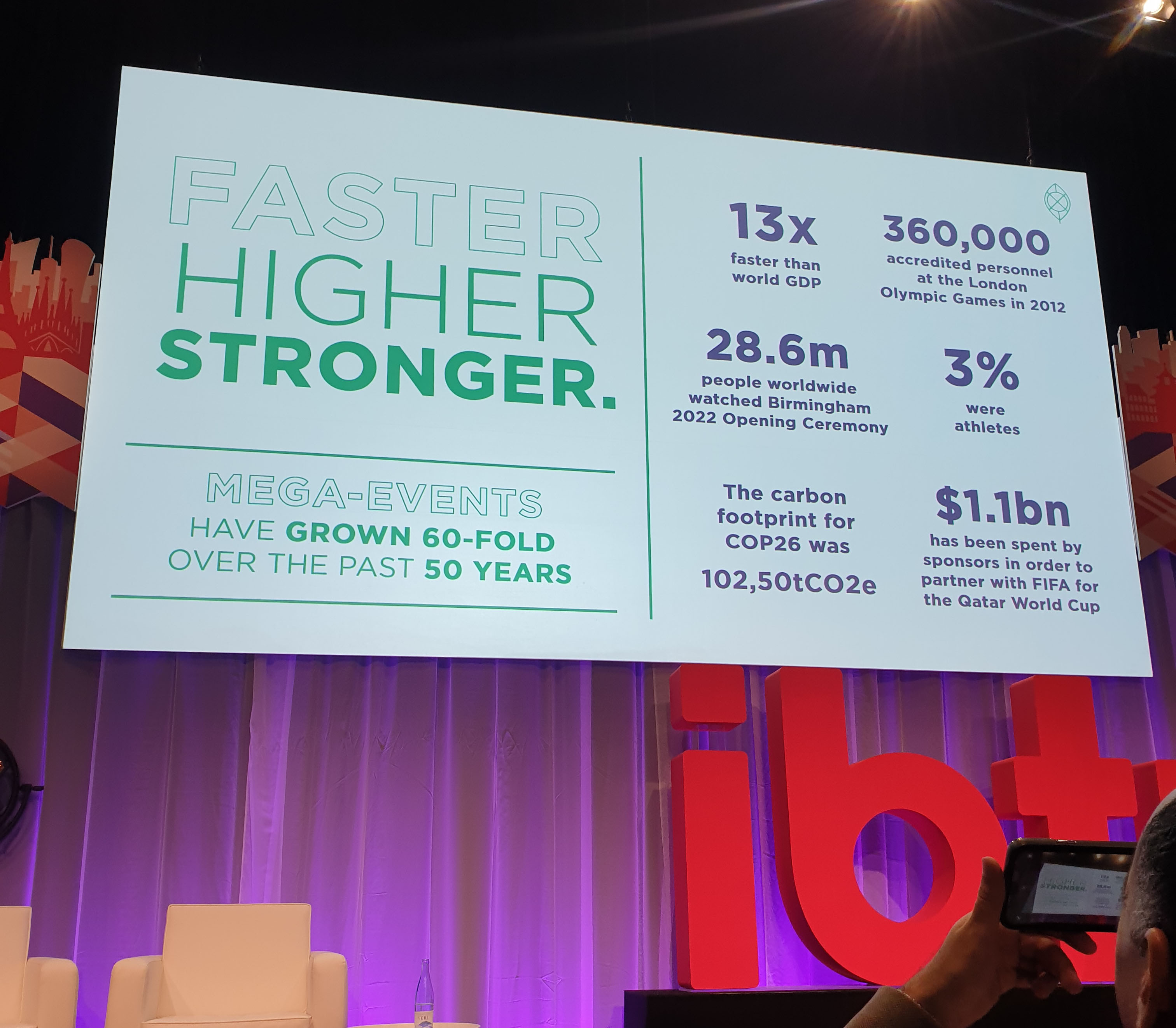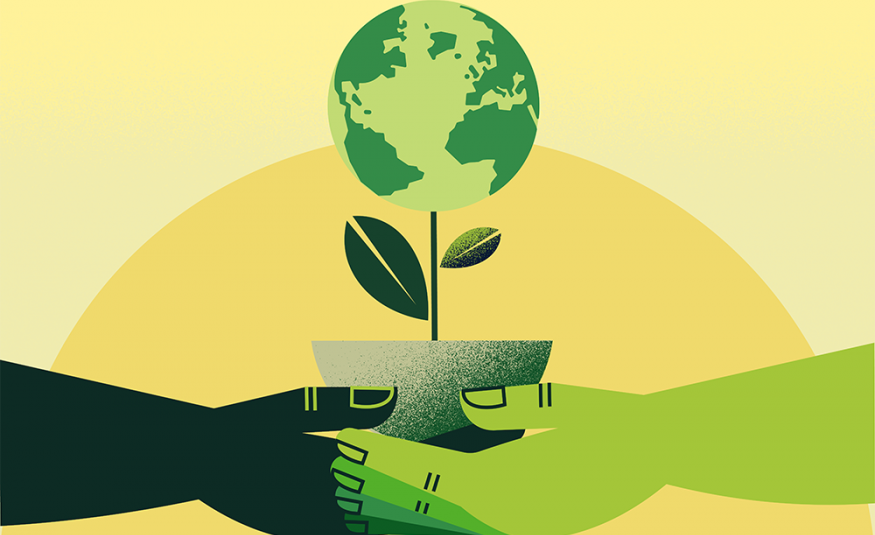Selina Donald speaks with Catie Owen about how her UK-based sustainability consultancy The Bulb is making waves in the mega events sector
 Selina Donald (pictured left), founder and chief sustainability officer of The Bulb, has a wealth of experience incorporating sustainability into mega events. The sustainability consultancy has worked on high-profile UK-based events including the London 2012 Olympic and Paralympic Games and the Birmingham 2022 Commonwealth Games, and international events such as the 2016 Rio Olympics.
Selina Donald (pictured left), founder and chief sustainability officer of The Bulb, has a wealth of experience incorporating sustainability into mega events. The sustainability consultancy has worked on high-profile UK-based events including the London 2012 Olympic and Paralympic Games and the Birmingham 2022 Commonwealth Games, and international events such as the 2016 Rio Olympics.
Selina spoke to EW at IBTM World in December, hot on the heels of her knowledge session ‘Accelerating Sustainability: Lessons from Megaevents’.
Catie Owen: What was the process behind The Bulb securing the Birmingham Commonwealth Games’ ceremonies?
Selina Donald: The Bulb created and led the sustainability and social values strategy for the opening and closing ceremonies for Birmingham Commonwealth Games 2022. The opportunity came to us at the tender stage for the ceremonies, where several companies tendering to produce the ceremonies got in touch. We worked with them to create their initial strategy and then worked with them to create their plan. One group was from the London Olympic Games 2012, so we were working with a lot of familiar faces and the best in the industry.
During the process, we were held to account by 19 different social values and sustainability commitments – they weren’t just a nice to have, they were a contractual agreement. We set our expectations early and told our suppliers that we needed these values from them.
Overall, The Bulb worked with the Commonwealth Games ceremonies team to create, embed, and monitor the strategy, measure the results, and provide a report at the end – which we’ll release in 2023.
CO: COP27 in 2022 saw several controversies regarding the event’s sustainable practices, what should future COPs be doing better?
SD: I feel bad for the bad reputation that Egypt, Sharm el Sheikh, got from COP27 because we need to give countries opportunities to host these huge events. But we also need to think about the sustainability of the infrastructure and the purpose of the event. As COP brings countries together to combat climate change, does it need to change location every year?
The controversies started with Coca-Cola being a sponsor. Putting one of the world’s most polluting brands as a sponsor for a climate change event felt like a clear example of greenwashing. Thankfully, Coca-Cola was pulled as the sponsor halfway through the event, which I think shows the power of people and protest.
Additionally, it was reported that there were over 600 pro-oil and gas lobbyists in attendance trying to ensure that the agreement didn’t go through. As the purpose of this event is to combat climate change, it needs to stay focused on that goal. We need to start asking – who do we actually need at these events?
COP28 in Dubai’s Expo City will be huge because it’s a great venue. Dubai is showing real headway towards sustainability, and they need to make sure they really think about COP28’s sponsors, attendees, and attendee experience.

CO: What advice would you give businesses who think that sustainable practices are a burden rather than an investment?
SD: Businesses should reframe sustainability as the best opportunity they’ll ever have to showcase their creativity and innovation. Unilever’s CEO once said that sustainability is innovation spelled differently – I think that sums up the opportunity at our fingertips.
We have the opportunity to transform the way that we think and innovate in a more sustainable way which will impact future generations, make us healthier, and the world better. Businesses need to grasp this opportunity now while they can be at the forefront of it. We’ve had the industrial revolution, the digital revolution, and now we’re moving into the sustainable revolution – businesses that don’t get on board with that will be left behind.
CO: As we return to in-person events, virtual and hybrid events have been on the decline. Is this a missed opportunity for sustainability?
SD: With hybrid, you really can’t make in-person meaningful connections. A whole room, or stadium, of people creates a boost like nothing else. I don’t believe everything should be hybrid or digital because only being in front of a screen is soul destroying.
Post-pandemic, we’re seeing a lot of noise and in-person events are beginning again. This is great, but for sustainability purposes we might need to consider scaling back – it’s about quality not quantity. The recession might contribute to it; maybe we’ll start to see brands doing fewer but higher quality events.
CO: How do we keep our audiences engaged with sustainability as more than a buzzword?
SD: We keep people switched on by making sustainability fun. I recently attended a paperless event where the technology was interactive.
When attendees touched their lanyards together, it swapped their contacts and emailed them to the attendees at the end of the day. Not only was it sustainable as they’re reusable event-to-event, but bashing the lanyards together was really fun!
There are other ways to implement fun. I’ve been to several events which incorporated things like straws made from avocado seeds or stands built from cardboard – objects that create a narrative that makes sustainability fun, engaging, and educational.
Sustainability can be as small as the food you provide at your events, to the entire set and stage. Overall, it’s about communication and doing what you can.





